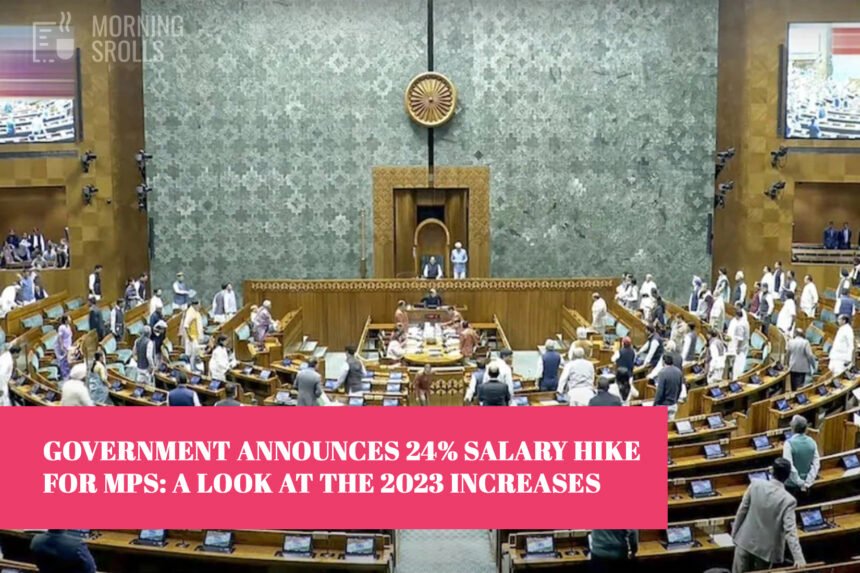On Monday, the government announced a 24% salary hike for Members of Parliament (MPs), effective from April 1, 2023. This raise brings their monthly salary to Rs 1.24 lakh, along with various allowances and benefits.
According to a notification from the Ministry of Parliamentary Affairs, the daily allowance for MPs has also been raised from Rs 2,000 to Rs 2,500. MPs can claim this allowance when attending Parliament sessions and meetings of parliamentary committees.
For former MPs, the monthly pension has increased from Rs 25,000 to Rs 31,000. Additionally, the extra pension for each year of service beyond five years has gone up from Rs 2,000 to Rs 2,500 per month.
In 2018, the then finance minister Arun Jaitley had previously raised MPs’ salaries from Rs 50,000 to Rs 1 lakh and established a system for automatic salary adjustments every five years based on inflation. This change eliminated the need for MPs to recommend their salary increases.

Now, an MP will receive Rs 1.24 lakh as a salary, Rs 87,000 as a constituency allowance (up from Rs 70,000), and Rs 75,000 for office expenses (up from Rs 60,000). The office expense allowance includes Rs 50,000 for hiring a computer-savvy assistant and Rs 25,000 for stationery.
MPs are also allowed to buy durable furniture worth Rs 1 lakh and non-durable furniture worth Rs 25,000 once during their term. Previously, these limits were Rs 80,000 and Rs 20,000, respectively.
In terms of accommodation, MPs can stay in various options, from hostels to two-bedroom flats and bungalows in central Delhi. They are reimbursed for electricity, water, telephone, and internet bills. Additionally, they and their families can claim reimbursement for 34 one-way air tickets from their constituency to Delhi and receive benefits for train travel.
During the COVID-19 pandemic in 2020, the government temporarily reduced the salaries of MPs and ministers by 30% for one year.
This salary increase is made under the Salary, Allowances, and Pension of Members of Parliament Act, using the Cost Inflation Index defined in the Income Tax Act of 1961.
ALSO READ: Zero Tax on Income Up to Rs 12 Lakh: How Finance Companies Will Benefit from Budget 2025










